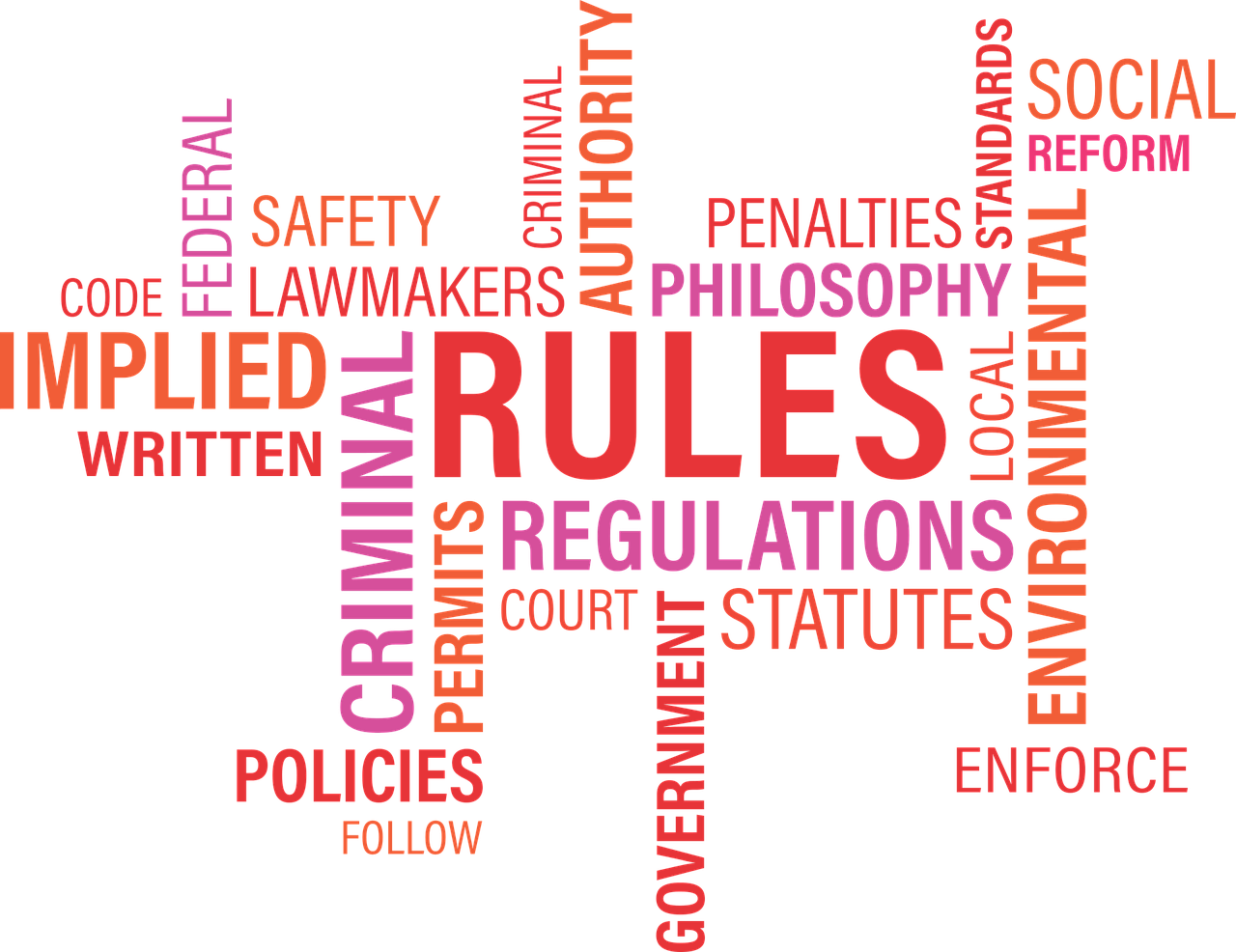The DSCSA regulation roll-out not only comes with complex compliance requirements, but also features some harsh penalties for those who fail to follow them. The FDA has already given extensions on some deadlines that recently passed,
Not worth the Risk, Be Compliant!
Hello Everyone, Chris from TrackTraceRx! We get a lot of questions asking… “What will happen if i am not ready once the deadline takes effect?” “What are the penalties?” etc… I hope this article will clear a few of these questions.
The DSCSA regulation roll-out not only comes with complex compliance requirements, but also features some harsh penalties for those who fail to follow them. The FDA has already given extensions on some deadlines that recently passed, but there isn’t a lot of time before the November 1 2015 date hits, so it’s important to know what penalties will be suffered if there’s any failure to comply beforehand.
“According to the FDA’s website, guidance documents simply represent the “current thinking” of the FDA on any particular topic, and are non-binding as long as you meet other requirements of the underlying law.”
However, it is also important to note the distinctions between compulsory law compliance, compliance with FDA rules, and FDA guidance.
The DSCSA was signed by the President and was an act of Congress, which means compliance is mandatory to avoid any penalties. Similarly, FDA rules are regulations that are backed by the law, so they also have to be complied with to avoid penalties. But FDA guidance – publications that there have been many of since the DSCSA was first passed in 2013 – aren’t laws at all. They aren’t even rules that must be followed, they’re completely optional and your company can implement them if they wish to, but there will be no penalties if you don’t take any of the suggestions to heart. According to the FDA’s website, guidance documents simply represent the “current thinking” of the FDA on any particular topic, and are non-binding as long as you meet other requirements of the underlying law.

For example, when it comes to the exchange of transaction documentation – the Transaction History, Transaction Information and Transaction Statement (T3 documentation) – that all United States pharmaceutical supply chain trading partners and dispensers have had to do since January 1 of this year, it’s a law. That means that compliance is mandatory or there will be penalties. What are these penalties? one article reads…
“Failure to comply with DSCSA can lead to fines, suspension or revocation of license, and even potential imprisonment or civil penalties.”
Another article reads…
“Penalties for a prohibited act include:
• Imprisonment for not more than one year and/or a fine of not more than $1,000.
• Imprisonment of not more than three years and/or a fine of not more than $10,000 for subsequent or intentional violations.
• Equitable remedies, such as restitution, disgorgement of profits, and product seizure.
• The Federal Criminal Code also authorizes a general fine of up to $250,000 for individuals and $500,000 for entities.”
So which is it? Good question! The DSCSA is not specific on what exactly the penalties will be. There’s a lot of mention of facing fines and jail time, but there’s really no further specifics and in-depth explanation.
Also, the way that documentation is exchanged isn’t beholden to any laws, and companies are free to choose whether they want to exchange it, whether it is via paper, Advance Shipment Notices (ASNs), the Electronic Product Code Information Service (EPCIS), or the Drug Pedigree Messaging Standard (DPMS).
Of course, it’s not only missing compliance deadlines that will get you in trouble. In the DSCSA, there has been outlined what will be considered a “prohibited act” under the new law, and the bill states they are as follows:
“(a) PROHIBITED ACTS.—Section 301 (21 U.S.C. 331) is amended by adding at the end the following: ‘‘(ccc)(1) The resale of a compounded drug that is labeled ‘not for resale’ in accordance with section 503B.
‘‘(2) With respect to a drug to be compounded pursuant to section 503A or 503B, the intentional falsification of a prescription, as applicable.
‘‘(3) The failure to report drugs or adverse events by an entity that is registered in accordance with subsection (b) of section 503B.’’.
(b) MISBRANDED DRUGS.—Section 502 (21 U.S.C. 352) is amended by adding at the end the following:
‘‘(bb) If the advertising or promotion of a compounded drug is false or misleading in any particular.’’”
So not only are there compliance dates, requirements regarding T3 documentation, and future serialization requirements that invite penalties, but you can also be subject to harsh consequences if you resell or misbrand product, as well as if you fail to report problems with shipments or suspect product to the FDA (generally within a 48-hour window).
And these are no longer just state penalties. Under this new law, there are consequences at a Federal level. For example, the DSCSA in its section on “Wholesale Distributor and Third-Party Logistics Provider Standards”, says:
“Beginning on the date of enactment of the Drug Supply Chain Security Act, no State or political subdivision of a State may establish or continue any standards, requirements, or regulations with respect to wholesale prescription drug distributor or third-party logistics provider licensure that are inconsistent with, less stringent than, directly related to, or covered by the standards and requirements applicable under section 503(e) (as amended by such Act), in the case of a wholesale distributor, or section 584, in the case of a third-party logistics provider.
‘‘(4) ENFORCEMENT, SUSPENSION, AND REVOCATION.—Notwithstanding paragraph (1), a State—‘‘(A) may take administrative action, including fines, to enforce a requirement promulgated by the State in accordance with section 503(e) (as amended by the Drug Supply Chain Security Act) or this subchapter;
‘‘(B) may provide for the suspension or revocation of licenses issued by the State for violations of the laws of such State;
‘‘(C) upon conviction of violations of Federal, State, or local drug laws or regulations, may provide for fines, imprisonment, or civil penalties; and
‘‘(D) may regulate activities of licensed entities in a manner that is consistent with product tracing requirements under section 582.”
Simply put, the state doesn’t control what consequences you face under DSCSA. There is not a lot of literature on what specifically these penalties are, likely due to the fact that the deadlines we’ve had pass so far have either been largely complied with or extended for those who haven’t had enough time, but we do know the penalties willinclude the ability to imprison for life any manufacturer, wholesaler or dispenser in the supply chain who has knowingly sold counterfeit drug product. Under the previous law this wasn’t an option – it only allowed officials to imprison counterfeiters, for between 3 and 10 years.
In a further effort to combat the rise of counterfeiting, DSCSA gives the FDA an extra $60 million to investigate counterfeit product over the next 3 years, and gives the FDA’s chief counsel the authority to issue a summons to anyone involved with any drug counterfeiting investigations.
It may also be helpful to know what product is exempt from DSCSA. An FDA guidance sets out product that is subject to the law, which is simply:
– Prescription drug in finished dosage form for administration to a patient without further manufacturing (such as capsules, tablets, lyophilized products before reconstitution)
And product that isn’t covered is as follows:
– Blood or blood components intended for transfusion
– Radioactive drugs or biologics
– Imaging drugs
– Certain IV products
– Medical gas
– Homeopathic drugs
– Lawfully compounded drugs
T3 documentation also has exemptions under the law. Documentation should be exchanged with the transfer of product where a change of ownership occurs. The exemptions to that are:
– Intracompany distributions
– Distribution among hospitals under common control
– Public health emergencies
– Dispensed pursuant to a prescription
– Product sample distribution
– Blood and blood components for transfusion
– Minimal quantities by a licensed retail pharmacy to a licensed practitioner for office use
– Certain activities by charitable organizations
– Distributions pursuant to a merger or sale
– Certain combination products
– Certain medical kits
– Certain IV products
– Medical gas distribution
– Approved animal drugs
Unfortunately, the FDA can’t reward those who haven’t done anything to prepare for the deadlines. They will likely have to seek out which companies are not complying with the law and penalize them to compel them toward meeting compliance as quickly as possible. Not penalizing those who failed to prepare would really itself be a penalty on those who put the time, effort and money into being prepared on time.




